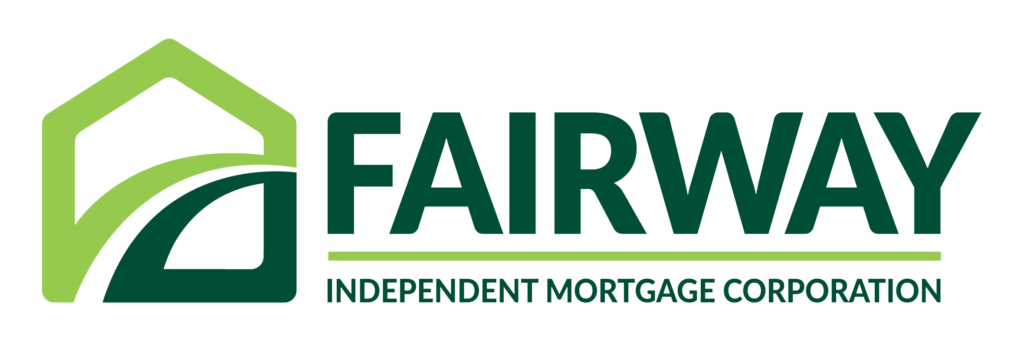Home Equity Conversion Mortgage (HECM) Loan: What You Need to Know

While there are several different types of reverse mortgages, most reverse mortgage loans today are HECMs—the only reverse mortgages insured by the Federal Housing Administration (FHA).
What is a Home Equity Conversion Mortgage (HECM)?
A Home Equity Conversion Mortgage (or HECM, commonly called a reverse mortgage) is a home-secured loan, specifically designed for homeowners 62 and older, that enables the borrower to convert a portion of their home equity into cash and defer repayment until a later date.
How a HECM Works
With a traditional mortgage, the flow of funds generally moves from the borrower’s bank account to the lender. Naturally, as the borrower makes payments, the loan balance decreases over time.
With a HECM, the flow of funds is typically reversed—the lender or servicer is the one making the payments to the borrower. A good way to think of it is that lender is giving you an advance on your home’s equity. In practical terms, home equity is the current market value of the home minus any liens against the property (e.g., the current balance on a first mortgage).
The borrower’s age, the interest rate, and the home value all factor into how much of the home’s equity the borrower can initially access with a HECM—you can get an idea of how much you may be able to borrow by using our reverse mortgage calculator.
Of course, a HECM is not is not free money. Just like a traditional mortgage, with a HECM, the borrower must repay the borrowed amount, plus interest and fees. However, a HECM offers the borrower much greater repayment flexibility compared to a traditional mortgage—it is a feature that can help the borrower to increase their cash flow in retirement. The borrower can choose to pay as much or as little toward the HECM loan balance each month as they would like—or they can choose to make no monthly mortgage payments at all—for so long as they occupy the home as their primary residence and pay the property-related taxes, insurance, and upkeep expenses.
The HECM loan becomes due when one of following maturity events occurs:
- The property is no longer the principal residence of at least one borrower. For example, a HECM would become due if the last remaining borrower passed away or permanently moved to a nursing home. (Note: The due and payable status of the loan may be deferred in certain situations in which an eligible non-borrowing spouse is involved.)
- A borrower does not fulfill their obligations under the terms of the loan. For example, a HECM would become due if the borrower failed to pay their property taxes in a timely manner—a requirement for compliance with the loan terms.
When the HECM loan becomes due, it is typically satisfied through the sale of the home on the open market. If the price that the home sells for is not enough to pay back the loan balance, the FHA guarantees that neither the borrower nor their heirs will be personally liable to pay the difference. This is known as the loan’s non-recourse feature. On the flip side, if home sells for more than the loan balance, the borrower (or the heirs) will be able to keep the difference. And, if the heirs choose to purchase the home themselves, they can by paying the full loan balance amount, up to 95 percent of the property’s appraised value.
HECM Eligibility
If you’re interested in getting a HECM loan, you’ll have to make sure you’re eligible first. Details are below.
- Age: The borrower must be age 62 or older
- Home ownership: The borrower must be the owner of the home and the home must have significant equity (e.g., the borrower owns the home free and clear, or the mortgage balance has been substantially paid down).
- Residency: The home must be the borrower’s primary residence. (They must live in the home for more than 6 months out of every year.)
- Credit requirements: The borrower must meet minimal credit requirements.* (There is no minimum credit score requirement and the income requirements tend to be less stringent than a traditional mortgage.)
- Property type
- Single family residences
- Two- to four-unit properties, as long as the borrower occupies one unit
- Condos in HUD-approved condominium project
- Condos that qualify for single-unit approval (SUA)
- Modular homes
- Manufactured homes that meet FHA requirements
How Do You Get a HECM?
HECMs are only available through FHA-approved lenders. Fairway Independent Mortgage Corporation is one such FHA-approved lender you can choose to work with, or you can also search online for FHA-approved lenders or ask a HECM counselor for a list of them.
Fairway genuinely has your best interests at heart and will go over all of the details of the HECM program with you, such as the loan approval process and repayment terms, to help you make an informed decision about one of your most valuable assets: your home.
HECM Payment Options
- Single disbursement, lump-sum: The borrower receives a single large payment from the lender at closing. This payment option is only available as a fixed interest rate HECM. (Note: All other payment options are only available as a variable interest rate HECM.)
- Line of credit: This is the most popular option and allows the borrower to draw available funds as needed from the line. In many ways, a HECM line of credit is similar to a Home Equity Line of Credit (HELOC), but the HECM line of credit does offer some distinct advantages. For instance, unlike a HELOC, a HECM line of credit cannot be reduced or canceled by the lender (or anyone else for that matter) because of market conditions or declining home values. As long as the borrower meets their loan obligations, the available money in the HECM line of credit is sure to there if and when it is needed. And, unlike a HELOC, the unused HECM line of credit grows over time at the same compounding rate as the loan balance, giving the borrower access to more available funds over time (the potential growth of the unused funds is not capped).
- Tenure payment: The borrower receives fixed monthly payments for so long as borrower occupies the home and abides by the loan’s terms.
- Term payment: The borrower receives fixed monthly payments for a set number of months.
Difference Between HECMs and Other Reverse Mortgages
While most reverse mortgage borrowers select the federally insured HECM loan product, some lenders also offer “proprietary” reverse mortgage loans, which are usually similar to a HECM but are never federally insured.
In some instances, a proprietary reverse mortgage may better serve the borrower’s needs. Here are some examples:
- Your property value is very high ($1 million+). The lending limit—meaning the maximum home value that a loan to value can be applied to—on a HECM reverse mortgage is $1,209,750. A lender’s proprietary Jumbo Reverse Mortgage product generally has a much higher lending limit compared to a HECM, which could help a borrower with a seven-figure property value to access a bigger chunk of the home’s equity.
- Your property is a unit in a condo complex that is not FHA approved. To be eligible for HECM financing, the condominium complex must be FHA approved. A proprietary reverse mortgage may have guidelines that permit lending to a borrower who owns a condo that is not FHA approved.
- The borrower is younger than 62. To be eligible for HECM financing, the borrower must be 62 or older. A proprietary reverse mortgage may have guidelines the permit lending to slightly younger borrowers.
HECM Pros and Cons
It is always a smart move for any prospective borrower to evaluate both the pros and cons of whatever loan or mortgage they are seeking to take out. Here are a few HECM pros and cons to keep in mind.
HECM Pros
- You are not obligated to make a monthly mortgage payment, although you can, for so long as you pay the homeowners insurance, property taxes, and general upkeep expenses.
- The HECM funds generally are not considered income and therefore are not taxed as such**
- You retain the title to your home for so long as you meet your loan obligations. As the homeowner, you can remodel your home or even sell it at any time—just like you could if you had a traditional forward mortgage.
- The HECM loan proceeds can be used for just about any purpose. Common uses are to supplement monthly income, establish an emergency fund, refinance an existing mortgage, and pay for long-term care or home renovations.
- A HECM generally does not affect Social Security or Medicare benefits.
- Almost all of the upfront costs, including reverse mortgage closing costs and ongoing fees, can be rolled into the HECM.
HECM Cons
- The unpaid reverse mortgage loan balance grows over time as interest and fees get tacked on.
- You are drawing down on your home equity. In most cases, that means your heirs would have less money (or no money at all) coming to them from that particular asset. However, by strategically tapping home equity first, you may be able to extend the life of your other productive assets—which could potentially lead to you having greater net worth to leave to your family.**
- Your eligibility to qualify for needs-based programs—such as Medicaid—may be affected.
- The upfront costs tend to be higher for a reverse mortgage than a traditional mortgage, home equity line of credit, or home equity loan.
- A reverse mortgage must be in the first lien position. Any existing mortgage on your home must be paid off in full prior to taking out a reverse mortgage. Note: A borrower can use HECM loan proceeds to pay off an existing forward mortgage at closing.
Is a HECM Right for You?
When older-adult homeowners effectively leverage the equity in their homes, it can be a real game changer for their retirement. While there are many HECM benefits, at Fairway we understand that each of our customers has unique needs, and sometimes a reverse mortgage is the best fit—and sometimes it is not. We also understand that the decision to move forward with a reverse mortgage is often a family decision, and it is often made with input from a financial advisor. We encourage open dialog among all those you trust to guide you in the decision-making process, and we welcome the opportunity to be an active participant in those conversations.
If you’re interested in learning more about HECM loans and whether one might be a good fit for your situation, Fairway can help. Let’s start a conversation today.
*Although applicants don’t have to go through a traditional loan application process based on their credit scores and histories, they do have to undergo a financial “assessment” to verify their assets and liabilities and determine if the borrowers’ current financial situation is sustainable for the foreseeable future. The home in question must also be in reasonably good shape, and any urgent major repairs must be completed before the homeowner can receive the net reverse mortgage proceeds.
**This advertisement does not constitute tax or financial advice. Please consult a tax and/or financial advisor for your specific situation.

